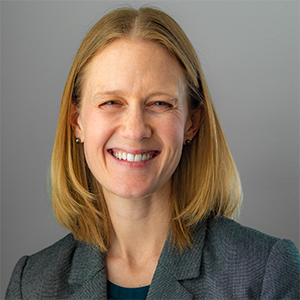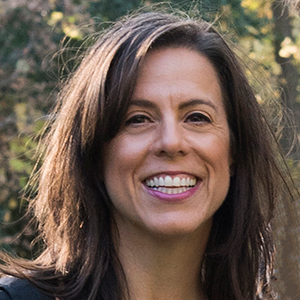There is still time to register! The Celebrating Teaching and Learning conference will be held virtually on May 19th with Webex. The event is FREE!

Why should you attend?
- To recognize innovations in teaching and learning by members of the Warhawk community!
- Spring semester grades are due the day before.
- You can attend from anywhere with internet access.
- It’s Free!
Morning Session (Equity in the Classroom)
| Time | Description |
|---|---|
| 10:00 AM to Noon | The conference will start with an Equity in the Classroom workshop led by the LEARN Center Equity Ambassadors. The workshop will begin with a panel discussion followed by interactive breakout sessions focused on practices that you could use to create a more equitable and inclusive learning environment. For more on the Equity Ambassadors: https://www.uww.edu/learn/equityambassadors |
Lunch Break
Noon to 1:00 PM
Afternoon Session (Celebrating Teaching and Learning)
| Time | Description |
|---|---|
| 1:00 PM | Welcome and Opening Remarks |
| 1:10 PM | Teaching with Technology: Organization, Assessment, Equity, and Inclusion. Erin Bauer, Assistant Professor of Musicology. |
| 1:40 PM | Using adaptive learning software in an introductory statistics course to improve student engagement and achievement. Meg Waraczynski, Professor of Psychology. |
| 2:05 PM – 2:20PM | Break |
| 2:20 PM | Technology to Engage Learners: A New Way of Teaching! Jeannine Rowe, Professor of Social Work. |
| 2:50 PM | A Focus on the Good: Technology to Improve Engagement, Equity, and Best Practices in Post-COVID Learning. Steven Girard, Associate Professor of Chemistry. |
| 3:20 PM | Innovator Winner Announced and Closing Remarks |
Teaching with Technology: Organization, Assessment, Equity, and Inclusion

Erin Bauer, Assistant Professor of Musicology
I typically teach a handful of general education courses in the online format. However, prior to the pandemic, I did not consider teaching my music history survey courses online. With the onset of COVID-19, my music history survey courses, general education offerings, and upper-division electives all shifted online. As such, I made a number of modifications to the structure and content. While these changes were initially made out of necessity, many have served my students better than anticipated and will continue in face-to-face offerings. This presentation will focus on the use of technology in my music history survey courses, but these techniques function similarly across all my offerings. In particular, we will explore the organization of materials on Canvas, alterations to learning resources in the online setting, gating of content to promote student accountability, effective assignments and assessments, and incorporation of provocative issues of racism, classism, and sexism in an inherently exclusionary online curriculum.
Presentation Description:
Organization of Course Materials:
Even in my face-to-face classes, I typically rely on the LMS. However, in shifting fully online, this method of structuring each course became even more important. I break each course into content-based modules. Each module consists of a “page” providing a brief introduction to the material and learning objectives, my own lecture video, additional learning materials, and a list of assignments. I also expanded my learning materials to include supplemental readings, videos, and podcasts. These provide a variety of methods for students to access the material, but also introduce more provocative issues of racism, sexism, and classism within the Western canon. To hold students accountable, I “gate” the content. When students first log into the course at the beginning of the semester, they see only a “Welcome” module, consisting of my video introduction, the syllabus, and a discussion board with short, personal introductions. Once they view/complete these items, subsequent modules become available. The content page at the start of each module is followed by short multiple-choice quiz on the learning materials for the week. Students must complete it with 100% accuracy before subsequent assignments become available.
Effective Assignments and Assessments:
Prior to the pandemic, assignments in my music history survey courses closely resembled those in my own undergraduate career. In moving the courses online, I shifted assignments to focus on critical thinking. For each module, students now listen to musical examples and write a reflection on the discussion board, respond to a more provocative discussion prompt centered on issues like the inherent whiteness and maleness of the canon, the narrative of composer as genius, and the importance of representation, and complete an examination consisting of short essay prompts.
Equity and Inclusion:
The technology-based alterations to these classes have increased equity and access to the curriculum. Beyond changes to curricular content to address issues of diversity, tokenism, and power within the Western music canon, alternative learning materials, free and open-access resources, flexible synchronisms, and student choice of assessment modality allow students from diverse backgrounds to interact with their educations in ways that are most approachable, engaging, and productive for individual circumstances.
Using adaptive learning software in an introductory statistics course to improve student engagement and achievement.
Meg Waraczynski, Professor of Psychology
This presentation will introduce audience members to using Realizeit’s adaptive learning platform to support student success. Adaptive learning software allows students to achieve mastery at their own pace. In my introductory statistics course the Realizeit platform takes the place of a textbook. Students learn basic content interactively and with immediate feedback on their comprehension. Students who struggle can be directed to extra support while students with existing knowledge can skip exposition they do not need. Realizeit affords several advantages. For instance, the instructor gets information about which concepts or skills need more exposition and also about which students are struggling with what material. Students can spend more in-class time working with peers to practice new skills via the analysis and interpretation of authentic datasets. Students may work on lessons until they achieve a target mastery level. Lessons remain available for review throughout the semester, with novel questions presented at each iteration. Attendees will get a brief introduction to creating Realizeit lessons and will see what a typical lesson looks like to students.
Presentation Description:
- Attendees will learn that mastering adaptive learning software for their courses need not be intimidating.
- Attendees should see that adaptive learning software offers substantial and numerous advantages to them and their students.
- Attendees should gain the background to start thinking about how adaptive learning software might apply to their own courses.
Technology to Engage Learners: A New Way of Teaching!

Jeannine Rowe, Professor of Social Work
Using technology has evolved significantly in the last two decades. Wherein the past technology was touted as a substitute for teaching traditional face-to-face classes, today it is viewed as a platform to transform the learning experience. This presentation will include a first-hand account of using technology in teaching over the past 20 years. As part of this account, the presenter will share her perspective as a social science educator on the evolution of technology, and share examples of how she utilizes technology to actively engage learners and transform the learning experience in an online format. Unique to this presentation will be the sharing of activities that use technology to promote positive skill growth for learners enrolled in social, behavioral, and allied health professional training programs.
Presentation Description:
This session will be of interest to instructors who want to engage students as active and creative learners using technology. Because the presentation will include examples of activities using technology in online and social and behavioral health arenas, it may be particularly attractive for instructors in similar venues. The activities to be shared will be presented within the context of PICRAT, which is a technology integration model that requires consideration of the student’s relationship to technology and the instructor’s use of it, in designing activities/lessons with technology to maximize student engagement and achievement. Sample activities to be shared include those that foster interpersonal skills, promote written and oral communication skills, and enhance group facilitation skills.
Individuals who attend this presentation will:
- Recognize the value of using a framework, such as PICRAT to develop activities/lessons that integrate technology
- Identify the how activities using technology can be both creative and transformative
- Classify how different activities/lessons fit within the PICRAT framework
The presentation will be engaging and prompt attendees to rethink how they might develop activities/lessons using technology. There will be time for attendees to ask questions and engage with the presenter and others.
A Focus on the Good: Technology to Improve Engagement, Equity, and Best Practices in Post-COVID Learning

Steven Girard, Associate Professor of Chemistry
Our sudden move to remote learning one year ago laid bare the systemic challenges facing all institutions of higher education. While the downsides of online instruction became apparent from our sudden shift online, so did unexpected benefits. In this talk, we will focus on the good: increased flexibility in managing time and work/life balance; accessibility and communication; and the learning and leveraging of new technologies to improve student outcomes. These benefits of online instruction will persist well beyond the pandemic, and in many ways have already become ingrained. I will detail my use of a variety of technologies to improve student-student and student-instructor classroom community; linking instructors to technology best practices; and ways to improve accessibility and equity of online/remote teaching resources.
Presentation Description:
This talk will highlight:
- Technology to build a sense of community and belonging in the classroom via trivia games.
- Online discussion sessions to facilitate in higher order learning and “un-Google-able” exam questions.
- Technology to build community and best practices amongst faculty and staff.
- Adaptive learning and online textbooks: growth mindset, positive study habits while improving accessibility and equity via Cerego and Open Educational Resources (OERs).
